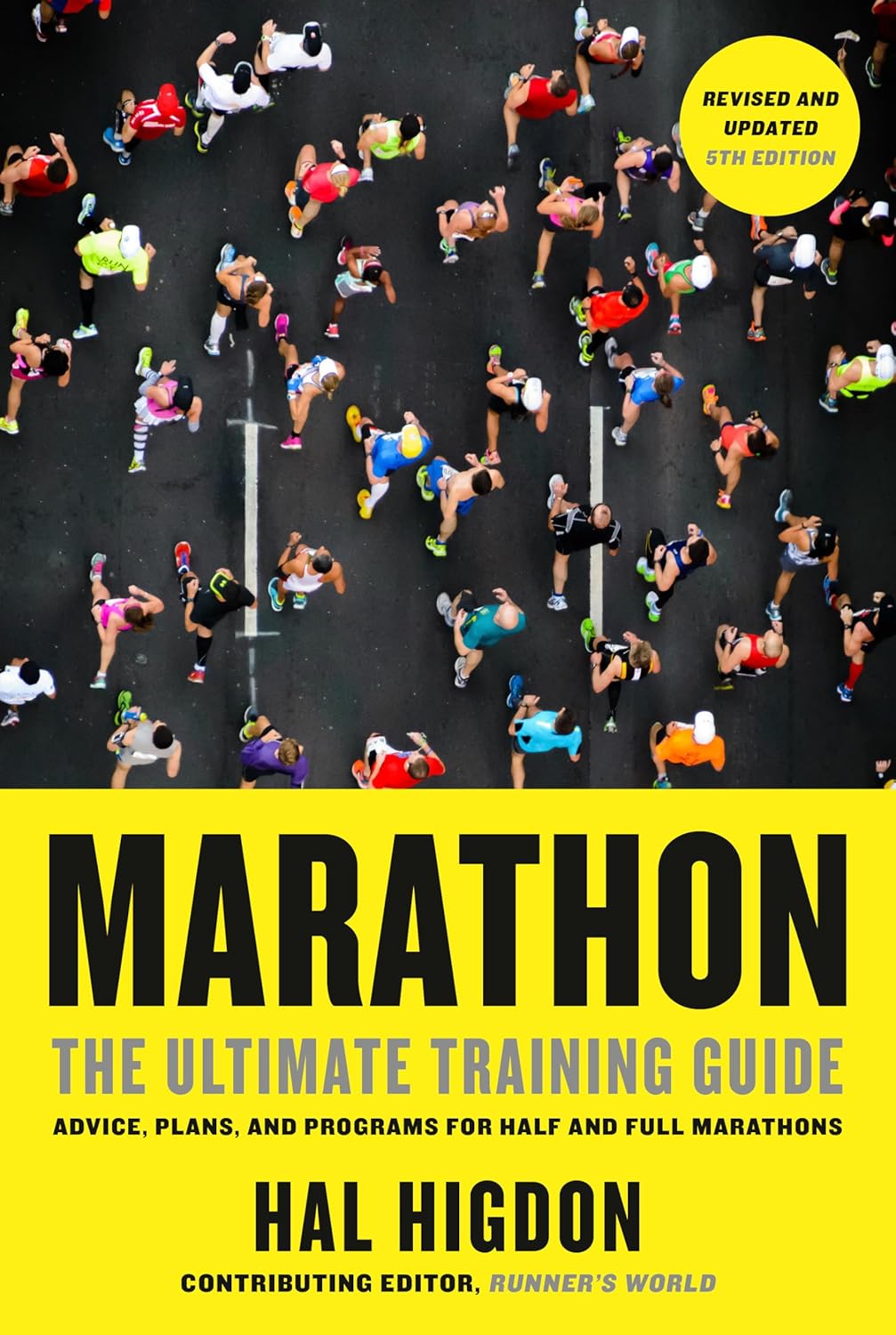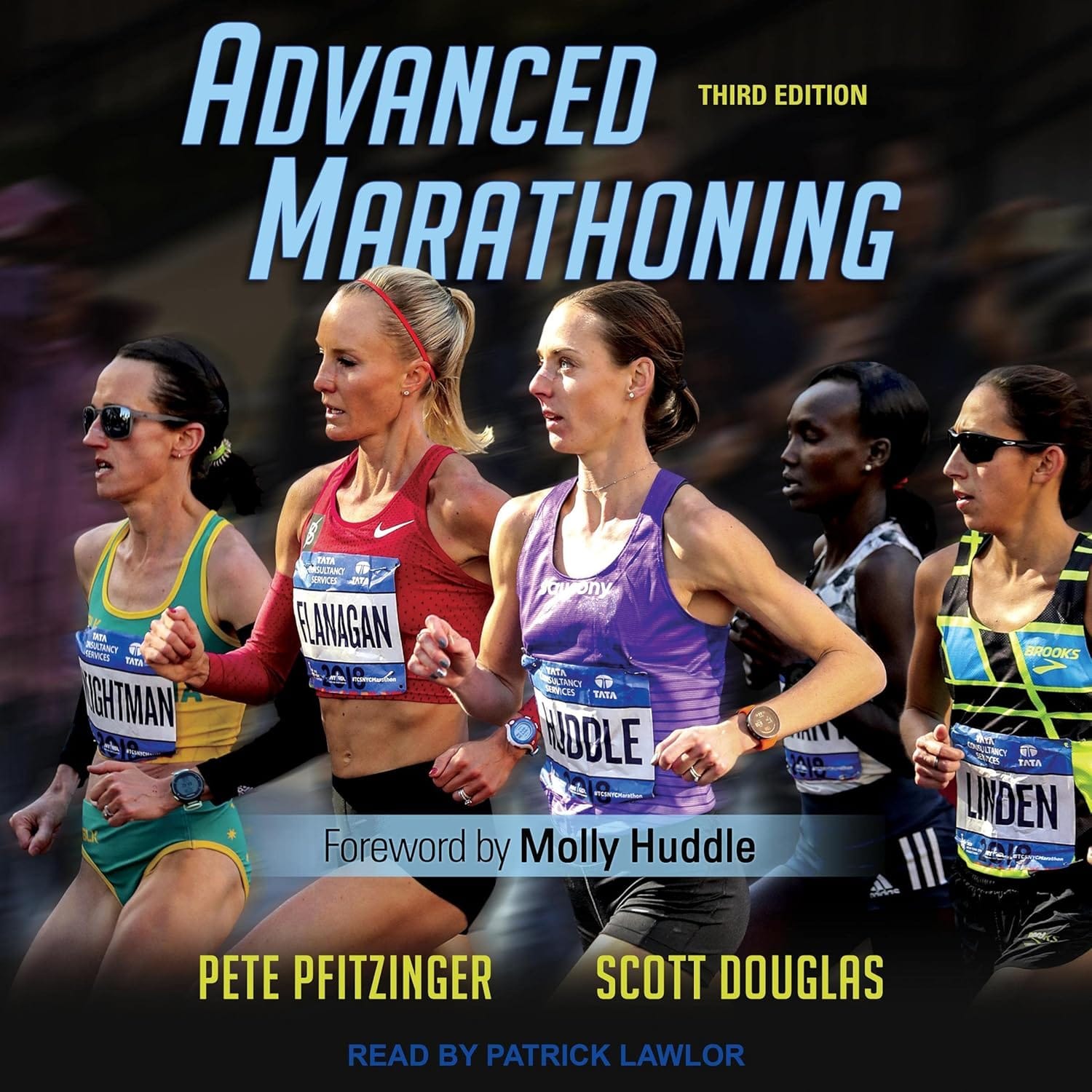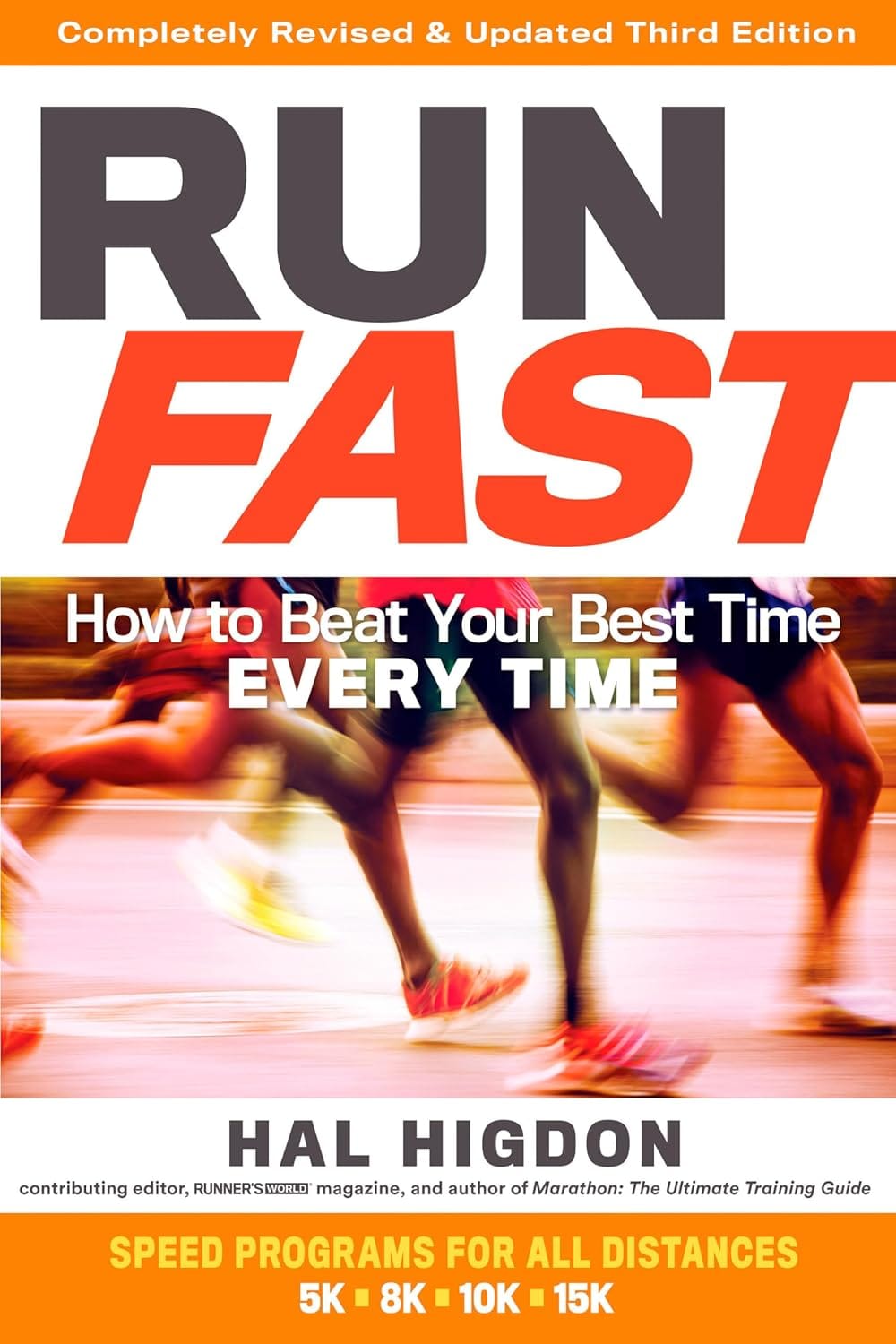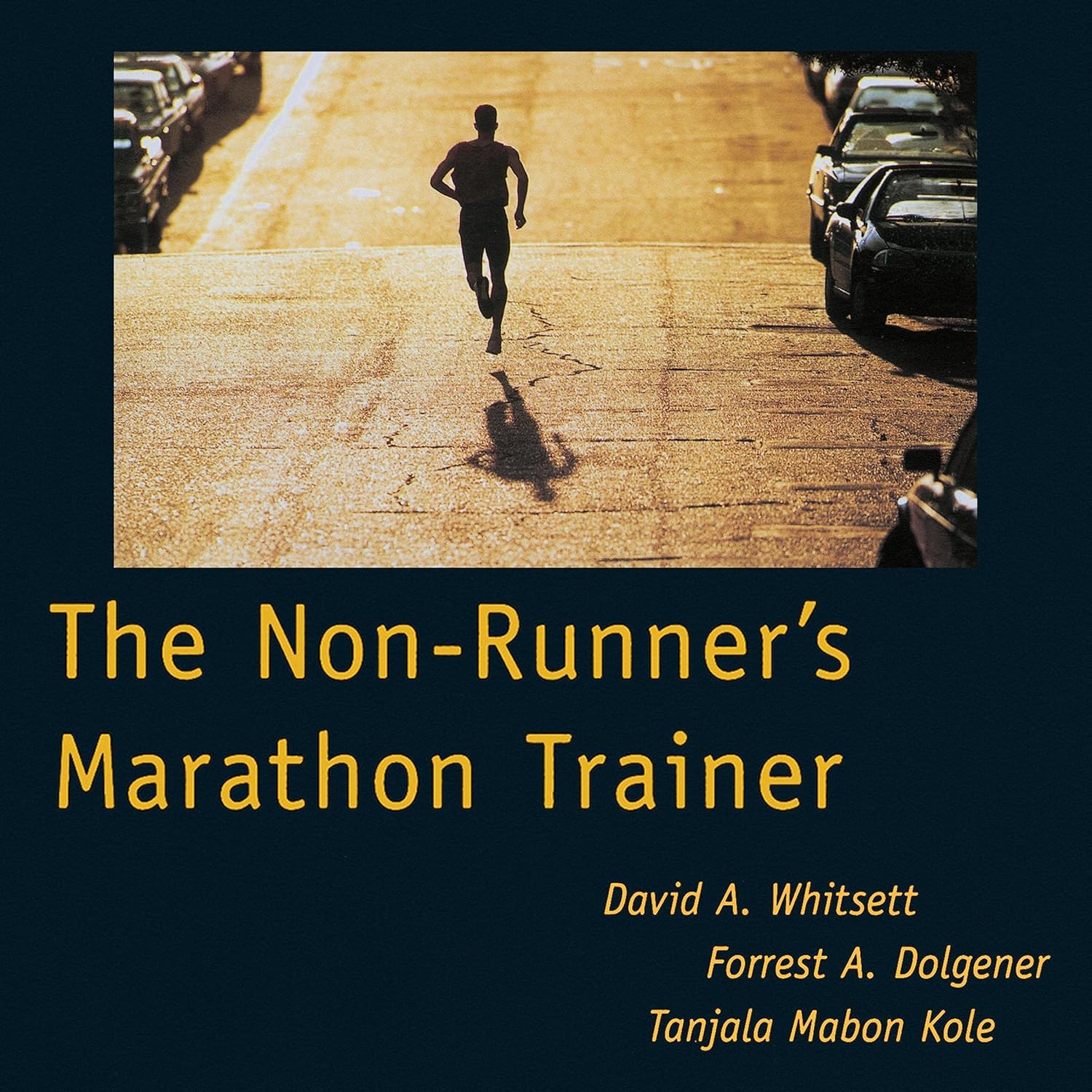Top Marathon Running Books to Elevate Your Performance
Discover the best marathon running books to boost your training, improve endurance, and prepare smarter for race day with expert advice and proven strategies.

Are you looking for a way to increase your running endurance? If so, check these books! Each book is filled with tips and insights, so you can get the most out of your training and race-day experiences.
From beginner training plans to advanced strategies, these books have something for everyone—whether you’re just starting or you’re a veteran of the race. So, if you’re ready to take your running to the next level, then pick up one of these marathon running books today!
Marathon: The Ultimate Training Guide
Shop NowThe Ultimate Training Guide: Advice, Plans, and Programs for Half and Full Marathons by Hal Higdon
Marathon, The Ultimate Training Guide: Advice, Plans, and Programs for Half and Full Marathons by Hal Higdon is an excellent resource for runners of all levels and provides detailed information on how to safely and effectively train for a marathon. It is among the bestselling running books of all time for many reasons, but above all others is this one: It works.
The popularity of half-marathons has grown immensely, and guidelines for best recovery and diet practices have changed. This edition includes a new chapter on ultramarathons, along with material on recovery techniques, several new training programs, and advice on how to win a Boston qualifying race and improve your personal record.
Check details at amazon.com
Advanced Marathoning
Shop NowAdvanced Marathoning by Pete Pfitzinger and Scott Douglas
This book is a comprehensive guide for experienced marathoners, featuring specific training plans and advice on how to reach peak performance. Find the plan that works best for you from the detailed day-by-day training schedules and preparations.
If you run marathons close together, you’ll find 6- to 12-week training plans to maximize your training time and recovery. For older marathoners, there is a full chapter dedicated to their unique training, nutrition, and recovery needs.
Check details at amazon.com
Run Fast: How to Beat Your Best Time Every Time
Shop NowRun Fast: How to Beat Your Best Time Every Time by Hal Higdon
Run Fast, How to Beat Your Best Time Every Time by Hal Higdon provides detailed advice on how to improve running technique and performance and includes sample training plans for various race distances.
It is a comprehensive guide for runners of all abilities to improve their speed and achieve a personal best at any distance. Hal Higdon is one of the most experienced and trusted experts in running, and this classic volume is completely revised and updated with new workouts, race distances, and advice for runners of every level.
Run Fast spells out a complete program to help you increase your speed, build your endurance, improve your times, and motivate yourself to achieve your running goals.
Check details at amazon.com
The Non-Runner's Marathon Trainer
Shop NowThe Non-Runner's Marathon Trainer by David A. Whitsett
The Non-Runner's Marathon Trainer, by David A. Whitsett, Forrest A. Dolgener, and Tanja C. Hesson, is an excellent resource for non-runners who are looking to complete a marathon and provides detailed advice on how to make the transition to running.
It is based on the highly successful marathon class offered by the University of Northern Iowa, which was featured in a Runner's World article titled "Marathoning 101". The class has been offered five times over 10 years, and all but one student finished the marathon. That is approximately 200 students - all first-time marathoners and many with absolutely no running background.
This book follows the same 16-week, four-day-a-week workout plan. What makes the success rate of this program so much higher than any other? The special emphasis is on the psychological aspects of endurance activities. You don't have to love to run - you don't even have to like it - but you have to realize that you are capable of more than you have ever thought possible.
Check details at amazon.com
FAQs
These books are all great resources for anyone looking to learn more about marathon running and will help you reach your marathon goals. The resources along with FAQ help you decide the best book for you.
Q: What should I read before a marathon?
Answer: If you’re preparing for a marathon, the right reading can make a huge difference in how well you train, how confidently you race, and how wisely you recover. Whether you're a first-timer or aiming for a personal best, here are the most valuable things you should read before marathon day:
1. Your Race Guide & Official Communications
Start with the basics. The event organisers will send you a race handbook or email guide—don’t skip it. It includes:
- Race-day schedule
- Start waves and corrals
- Gear check rules
- Water and nutrition station locations
- Course map and elevation
- Emergency procedures
This information eliminates unnecessary stress so you can focus entirely on your performance.
2. The Course Map & Elevation Profile
Studying the course is one of the smartest things you can do. Pay attention to:
- Hills, climbs, and descents
- Narrow turns
- Long stretches without shade
- Where the crowd support is strongest
- Where you might need to pace more conservatively
Knowing the course helps you mentally prepare for tough sections so you don't burn out early.
3. A Proven Training Plan (Even Late In Training)
Even if your marathon is close, revisiting structured plans like:
- Hal Higdon
- Hanson’s Marathon Method
- Nike Run Club
- Jack Daniel's Running Formula
This helps reinforce pacing strategies, tapering, and race-day nutrition.
4. Race-Day Nutrition & Hydration Guides
Nutrition can make or break your marathon. Read up on:
- How many carbs to take per hour
- When to start fueling
- Electrolyte balance
- What gels or chews work best for your stomach
- How to avoid GI distress
Your gut is as important as your legs on race day.
5. Mental Preparation Techniques
Marathons are as psychological as they are physical. Helpful reading includes:
- Visualization exercises
- Mantras used by elite runners
- Strategies for handling the “wall”
- Tips on overcoming anxiety or pacing fears
Books like “Let Your Mind Run” or “How Bad Do You Want It?” give practical mental resilience tools.
6. Tapering Tips
Many runners feel anxious or restless during taper week. Reading about the purpose of tapering helps you trust the process. Look for guidance on:
- Reducing volume but keeping intensity
- Extra sleep
- Carb-loading
- Avoiding overtraining in the final days
Tapering is where much of your performance gains solidify.
7. Weather Strategy Articles
Weather plays a huge role on marathon day, so read advice tailored to the forecast:
- Running in the heat
- Racing in the rain
- Cold-weather layering
- Wind management
- Shoe and gear adjustments
A smart gear choice can save you minutes.
8. Inspirational Stories & Race Recaps
Before the marathon, inspirational content helps boost confidence and calm nerves. Check out:
- Reddit’s r/running race reports
- Elite athlete interviews
- Marathon documentaries
- Blogs from runners who have completed your race
These give you a realistic picture of what’s coming and how others pushed through tough moments.
9. Injury Prevention & Stretching Guides
In the final week, you want to stay healthy, not push harder. Helpful topics include:
- Dynamic warm-ups
- Foam rolling techniques
- Taper-safe mobility exercises
- Signs of overuse injuries
- When to rest vs train
Staying injury-free is a win in itself.
10. Basic First Aid & Emergency Signs
It's also smart to read about warning signs like:
- Heat exhaustion
- Hyponatremia
- Dehydration
- Blisters and chafing management
- When to slow down or stop
Safety should always come first.
Before a marathon, read anything that helps you feel prepared—mentally, physically, and logistically. Understanding the course, knowing your fueling strategy, trusting your training, and walking in with the right mindset will give you a huge advantage on race day.
A marathon isn’t just a run—it’s an experience. The more prepared you are, the more enjoyable and successful it will be.
Q: Is 4 hours 20 minutes a good marathon time?
Answer: A marathon time of 4 hours 20 minutes is absolutely a respectable and solid finish for most recreational runners — especially if it’s your first marathon or if you’re not training at a competitive level. To understand whether 4:20 is “good,” it helps to look at how marathon performance is typically assessed:
1. It’s better than the global average.
Most recreational marathon runners finish between 4:20 and 4:40, depending on age, fitness level, and course difficulty. That means a 4:20 puts you close to — or slightly above — the average finishing time worldwide. So yes, it’s a strong result for a non-elite runner.
2. It shows solid endurance and commitment.
Running 42.2 km at a steady pace of roughly 6:10 per kilometer (or 9:55 per mile) takes disciplined training. Finishing at 4:20 means you’ve built real endurance, managed your pacing well, and likely avoided major breakdowns like the classic “wall” after 30 km.
3. It depends on your goals.
Whether 4:20 is “good” also depends on your running background:
- First-time marathoner? Excellent time. Most first-timers aim for anything under 5 hours.
- Seasoned runner? A good baseline — many experienced runners target sub-4 next.
- Competitive runner? Mid-pack, but not competitive for podiums or age-group placements.
4. Age and gender matter.
Marathon results vary widely across age groups. A 4:20 time can be remarkable for some categories and average for others. For example:
- Runners in their 50s and 60s often consider 4:20 an above-average finish.
- Young competitive athletes may view 4:20 as a casual run rather than a race.
5. Course difficulty also affects the answer.
A hilly or hot marathon makes 4:20 look even more impressive. A flat, fast course makes it more typical. Times shouldn’t be compared without considering conditions like weather, terrain, and race-day health.
6. You’re in the top “finish strong” category.
Many runners struggle in the last 10–12 kilometers and slow down significantly. Anyone finishing around 4:20 usually maintained consistent pacing, good fueling, and mental resilience — all marks of a well-executed race.
Yes — 4 hours and 20 minutes is a good marathon time for the majority of runners.
It’s a solid, commendable performance that shows effective training, endurance, and race strategy. If your personal goal is to improve, it also gives you a great starting point to target a sub-4 finish in the future.
Q: Is 3 hours 27 minutes a good marathon time?
Answer: Yes — a marathon time of 3 hours 27 minutes is considered a very good time for most runners, especially recreational and amateur athletes. To understand why, it helps to look at how marathon times compare across different groups.
1. Compared to the average runner
The average marathon finisher typically crosses the line between 4:20 and 5:00 hours. Finishing in 3:27 places you well ahead of the majority of runners and shows strong endurance, consistent pacing, and disciplined training. It also means you’re likely running around 7:50–8:00 minutes per mile (about 4:50–5:00 minutes per km) — which takes dedication to maintain for 42.2 km.
2. Compared to competitive amateur runners
Among more serious recreational runners, a marathon time in the 3:10–3:40 range is often seen as “strong” or “competitive.” So at 3:27, you’re squarely in the competitive category. You’ve clearly trained well, fuelled properly, and built a solid aerobic base.
3. Boston Marathon qualifying
Many runners use “BQ times” as a benchmark of performance. Whether 3:27 qualifies depends on your age and gender:
- For many men under 40, it may fall short of the BQ cutoff.
- For some older age brackets or female runners, it might meet or come close to qualifying.
Even if it isn’t a qualifying time for your category, you are still running significantly faster than the global average.
4. What a 3:27 time says about your training
Running a marathon in under 3 hours and 30 minutes is usually the result of:
- Following a structured training plan
- Completing consistent long runs
- Doing speed, tempo, or threshold work
- Managing nutrition and hydration
- Maintaining mental focus
- Building strong race-day endurance
In other words: people don’t “accidentally” run a 3:27 marathon — it reflects real preparation and fitness.
5. Elite comparison (just for context)
Elite marathoners finish in a 2:00–2:10 range, but comparing yourself to elites isn’t meaningful. They are professional athletes with high training volume, sponsorship, and often natural physiological advantages. What matters is how your time fits within your peer group — and for that, 3:27 is excellent.
Yes — 3 hours 27 minutes is a very good marathon time.
It places you well above average, shows strong running ability, and reflects serious training. Whether it’s competitive at a national or age-group level depends on your category, but for the majority of marathon runners, 3:27 is something to be proud of.
Q: Are 6 hours slow for a marathon?
Answer: A 6-hour marathon is not slow—it's actually a very respectable finish time for the majority of everyday runners. When people ask this question, they often compare themselves to elite athletes, but the truth is that marathons are designed for a wide range of paces, abilities, and goals.
Here’s the full picture:
1. The average marathon time is much closer to 4.5–5.5 hours.
Most recreational runners finish marathons somewhere between 4:30 and 5:30. Many first-timers finish between 5 and 6 hours. So a 6-hour finish places you within the normal range, not at the bottom.
2. Race cutoffs often go up to 6–7 hours.
Race organisers know that a significant number of runners are in the 5–6+ hour range, which is why their cutoff times are designed to support that. If 6 hours were “too slow,” races wouldn't structure around it.
3. Pace vs. persistence: finishing 42.2 km is an achievement in itself.
Running or run-walking a marathon for 6 hours means you maintained movement for a long period of time—mentally and physically far tougher than people realise. Many runners who consider themselves “slow” are actually very strong at endurance.
4. Everyone runs for different reasons.
Some chase personal records. Some run for health. Some run for charity. Some run simply to cross the finish line. The pace doesn’t determine whether your marathon matters.
5. Even experienced marathoners often finish between 5–6 hours.
Plenty of seasoned runners—especially those who focus on ultrarunning, long endurance work, or run-walk strategies—regularly sit in the 5:30–6:30 window.
6. A marathon is a massive challenge at any pace.
Completing 42.2 km requires discipline, training, hydration, fuelling and mental resilience. Almost 99% of people will never run a marathon in their lifetime. Finishing one—no matter the time—puts you in an elite minority.
No, 6 hours is not slow. It’s a solid marathon time and an achievement worth being proud of.
What matters most is that you finished strong, safe, and with a sense of accomplishment—because that’s what the marathon is really about.
Q: How many km should you run before a marathon?
Answer: There’s no single “magic number,” but most marathon runners follow a structured training plan that gradually increases weekly mileage and long-run distance so your body adapts safely. In general, the sweet spot for most runners is:
➡️ Longest training run: 29–35 km
You don’t need to run the full 42.2 km before race day. In fact, most marathon plans peak at 30–35 km about 3–5 weeks before the marathon. This distance is long enough to build endurance, confidence, and mental toughness without causing the excessive fatigue and injury risk that running the full distance during training could bring.
➡️ Weekly mileage: 40–70+ km depending on your experience
Mileage depends heavily on whether you're a beginner, intermediate, or advanced runner:
- Beginner: 40–50 km per week
- Intermediate: 50–65 km per week
- Advanced/competitive: 70–100 km+ per week
Most runners build mileage gradually using the 10% rule, increasing distance slowly to avoid overuse injuries.
➡️ Tapering matters just as much
The last 2–3 weeks before your marathon should include a taper, where mileage drops by 20–40% each week. This lets your body absorb the training, rebuild strength, and arrive on race day fully recovered.
Why don’t you run the full marathon distance during training
Many beginners assume they need to “practice” all 42 km beforehand, but running the full distance too early can cause:
- Excessive fatigue
- High injury risk
- Long recovery time
- Burnout before race day
You want to peak on race day, not during training.
A typical long-run progression might look like:
Week 1: 12 km
Week 2: 15 km
Week 3: 18 km
Week 4: 21 km
Week 5: 24 km
Week 6: 26 km
Week 7: 28 km
Week 8: 30 km
Week 9: 32–35 km (peak)
Week 10–12: Taper
Listen to your body
Every runner is different. Some experienced runners peak at 28–30 km and perform brilliantly, while others prefer hitting 34–36 km to build confidence. The right choice depends on your fitness level, injury history, and training plan.
Most marathon runners should run 29–35 km as their longest training run and aim for 40–70 km of weekly mileage leading up to the event. With structured training, proper rest, and a smart taper, you’ll be physically and mentally ready to run the full 42.2 km on race day.




